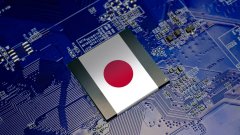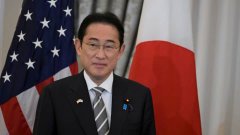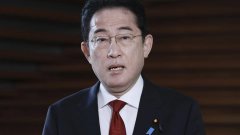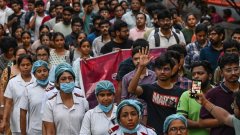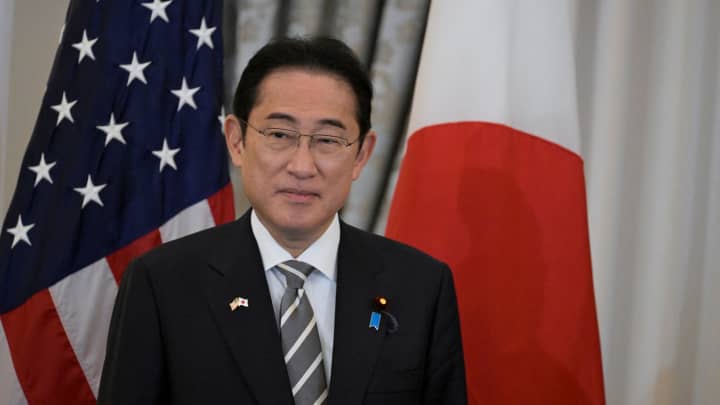
Japan's Prime Minister Fumio Kishida announced Wednesday he will not be running in the Liberal Democratic Party presidential election due next month.
Kishida said in a press conference that it is important for the LDP to have a new face in leadership and that a "first step" would be for him to step down, according to a Reuters translation. He added that he felt the need to step down in order for the LDP to regain the public's trust.
The prime minister also pledged to fully support the new leader.
Kishida's decision to not run for reelection effectively means he would step down as prime minister when the party elects a new leader, ending a three-year term.
He said the decision was made in consideration of what's best for the country's public, and that to make a full exit from the country's deflation-prone economy, wage and investment growth should be promoted.
Japan has been battling that have gripped country's economy since the 1990s.
The ruling LDP has been bogged down by a political funding scandal concerning the party factions' misallocation and underreporting of funds from fundraising parties, . Earlier in January, Kishida .
Kishida also said he has "no hesitation" in taking responsibility as head of the LDP "for issues caused by members," and has been mulling responsibility as leader since the funding scandal emerged.
and reported the news earlier.
According to the , the number of people who "support" the Kishida cabinet stands at 25%, while 55% do not.
Kishida assumed office in October 2021 and was one of former Prime Minister Yoshihide Suga's key challengers in the LDP leadership race in 2020, when . Suga stepped down just a year into the job.
"For September, expect the most uncertain LDP election we've seen in years, as there's no clear heir apparent for Kishida," said William Pesek, author of "Japanization: What the World Can Learn from Japan's Lost Decades."
Pesek surmises that those who may run include Defense Minister Shigeru Ishiba, former Foreign Minister Yoshimasa Hayashi, Digital Minister Taro Kono and minister in charge of economic security Sanae Takaichi.
Regardless, the next prime minister "won't have much of a honeymoon," he said in an email to CNBC.
"Kishida achieved virtually nothing on economic retooling. It's becoming a desperate need as inflation outpaces wages and investors fueling stocks to record highs worry irrational exuberance is outpacing underlying economic fundamentals," he said.

